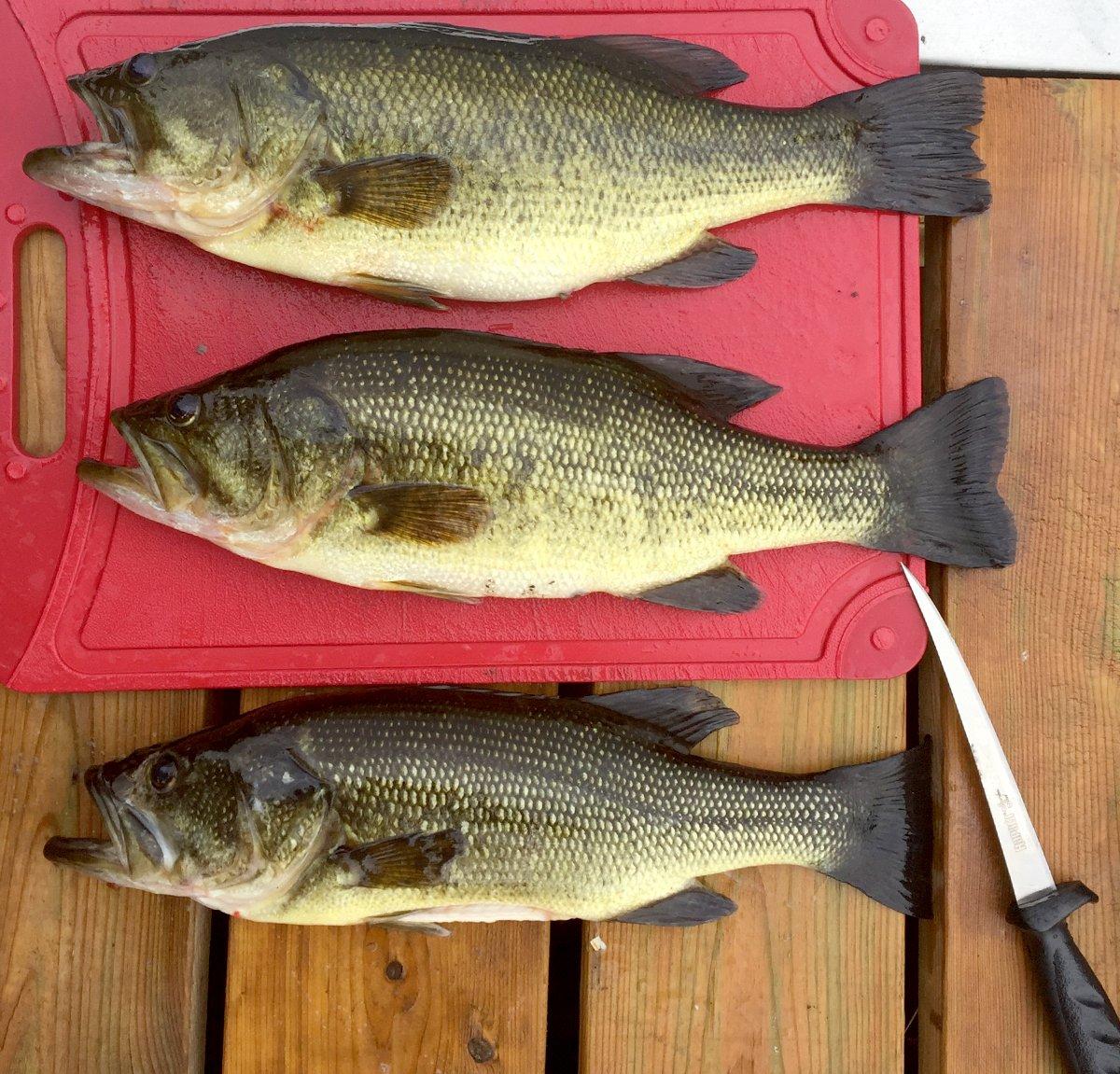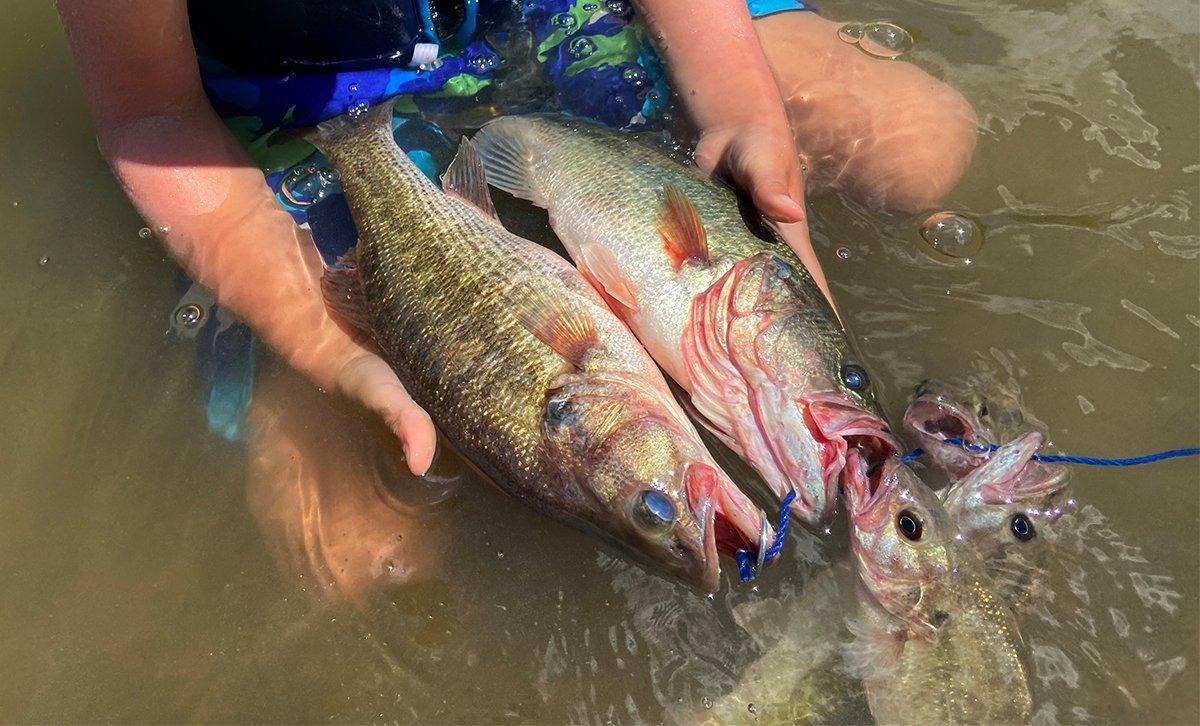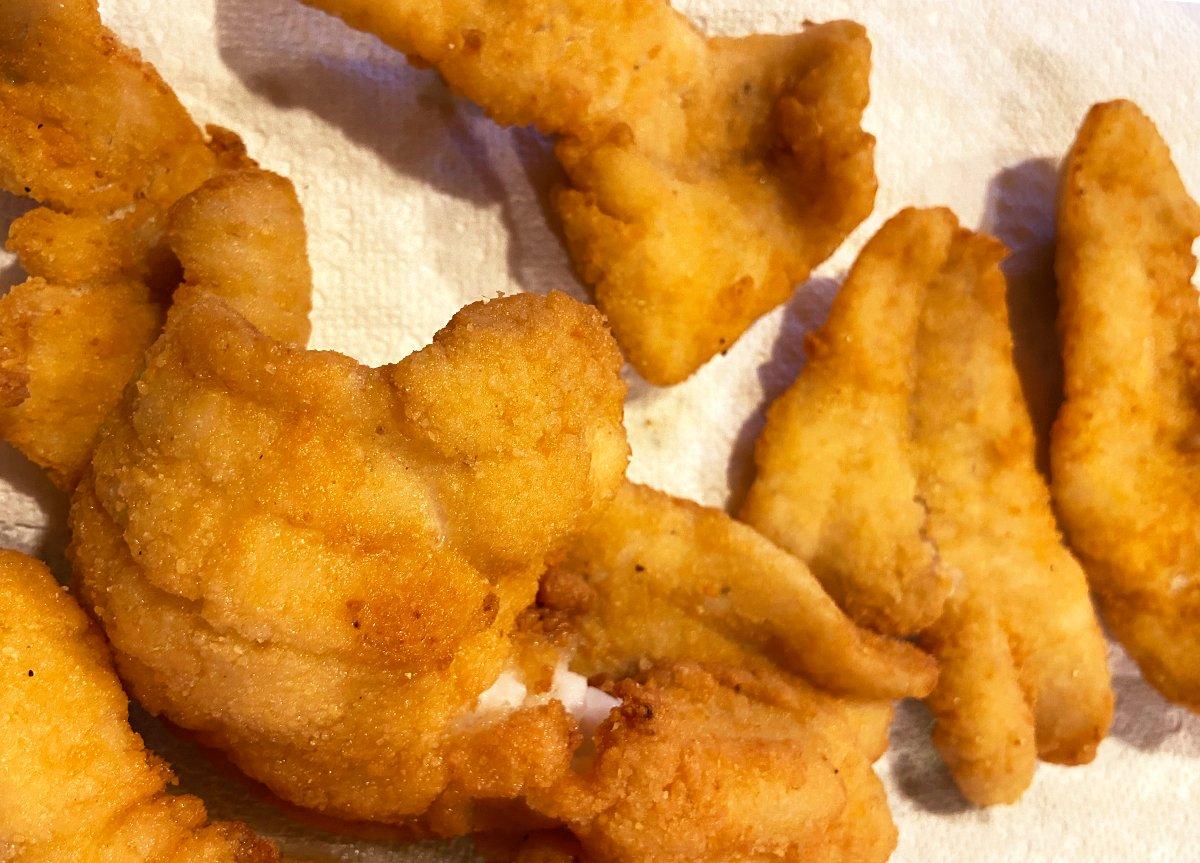The answer is yes — and the truth is, we'd probably have more big bass if we filleted a few of the little ones
Today's bass junkie is a different breed of angler. Dressed in the latest high-tech gear and operating a space-aged boat, competition drives his every move. Success is measured in pounds and ounces. All fish are released, coolers stay clean, and not a drop of blood can be found on the carpet. Today, bass fishing is a gentleman's sport.
But that wasn't always the case. Early on, fishing was a method of pursuing supper, regardless of the target species. The more you caught, the more you ate.
But as bass fishing became more organized, and the number of participants grew exponentially, a clear message accompanied the lifestyle. For the good of the sport, we must release all the bass we catch.
But is that right? I mean, scientifically speaking, is it necessary to never remove a bass from the population, in order for that population to remain strong? The answer may surprise you.
(Don't Miss: Why You Suck at Throwing a Baitcaster)
First, let's investigate our headline: Is It OK to Eat Bass? In terms of public health, of course it is. Any fish, really, is edible, and my experience has proven that all fish have regional preferences. For instance, in parts of New York, rock bass are prized panfish for the table. In most of Michigan, they're scoffed at and thrown back. Same fish.
As for black bass — largemouth, smallmouth, and spotted bass — most regions favor catch and release. In fact, it's estimated that over 90% of all the bass caught in America are released. However, there are a few locales where the catch-and-keep practice still has a strong following.
Out West, many anglers hate bass, particularly smallmouths. A few select rivers famous for salmon and trout fishing have been impacted due to introduced populations of black bass competing with native fish. As a result, you'll find more than a few anglers in, say, Montana, who are proud to kill every bass they catch, and it's often legal. I'd like to think that the majority are enjoyed as table fare.
Here in my home region of central Florida, there's a strong contingent of bass eaters. It's an old-school thing, mostly; country folks enjoying the bounty of the outdoors. Lots of Floridians fish both fresh and salt water, and eat fish from both.
(Killer Buy Alert: Men's Realtree Aspect Royal Blue Fishing Performance Long Sleeve Shirt)
And across much of the upper Midwest, smallmouth bass still fill coolers on charter boats, especially when fishing for other species like walleye and salmon slows. And in Texas, fishing stock ponds is a local pastime, and a good way to gather up the essential parts of a family fish fry. There's nothing wrong with that.
So yes, there's still a sizable group of anglers who believe it's OK to eat bass. It's certainly legal. Creel limits — those things we read about in the Game and Fish booklets that come with our fishing licenses — exist strictly as a way for area mangers to hold a steady stock. Theoretically, we could all keep our limit each time we caught it without a negative impact, if the math is right.
But we don't. In fact, most bass anglers keep few, if any fish. Ever.
If we really pressed the fisheries managers, they'd admit disappointment in that. As the goal of most bass anglers is to catch big bass, oftentimes we're a bit let down when we instead catch numbers of small fish. But if we kept some small bass for dinner, we'd be doing everyone a favor.
Here, I need to make a point that I'm making very general statements. Certainly, not all lakes are created equal. However, in general, many bodies of water are somewhat overpopulated with small bass. Biologically speaking, there's only so much food to go around. For a bass to get large, it must eat a lot. This becomes impossible in lakes with high numbers of small bass. They all compete for a limited food source, and no single fish grows especially large.
We see this all the time in private ponds. Owners stock bass without stocking many prey species and over time, all the bass end up being about 12 inches long. They feed on young-of-the-year bluegills or other panfish, and even other small bass, and rarely meet their potential. Once pond owners have had enough of catching mini bass, they hire a lake manager. That manager's first recommendation: remove about half the bass.
(Don't Miss: 5 Top Lures for Summertime Bass Fishing)
On a larger scale, this same scenario is occurring in many of our big, public bodies of water. Yet, with the high levels of angler effort today (in other words, LOTS of fishermen), we have the potential to manage these fisheries in much the same way as the pond owner. And today, we're finding more states regulating bass harvest by encouraging anglers to keep small fish. Florida is a prime example, where five bass can come home with each angler, but only one can measure over 15 inches. Other places have slot limits, where small or especially large fish can be kept, but fish in between, in the slot (say, 16 to 21 inches or whatever) must be released. Again, the idea is to get anglers to keep some youngsters.
Take some small bass. You're doing us all a favor.
Now, in terms of table fare, bass are given a bad rap. Sure, they're no swordfish. But they'll blow the doors off of tilapia. I eat a lot of fish; more than anybody I know. Freshwater and saltwater species. I've consistently found that when it comes to eating fish like bass that come from relatively warm freshwater environments, the key to good flavor and texture is in caring for the meat. For best results, get the fish cold as quickly as possible. While any fresh fish is good, to really up your game with bass, ice them the instant you catch them. Don't ride around with the fish in your livewell all day.
Keep that fish iced for the entire cleaning process, too. At no time is my fish out of the ice unless I'm actually putting a knife to it. Then it goes right back in ice after. It also helps to harvest bass during the colder months. That's not always possible due to seasons and regions, of course. But, if you can legally take bass in the late fall or early spring, use those fish for the freezer.
(Killer Buy Alert: Women's Realtree Aspect Ocean Spray Fishing Performance Long Sleeve Shirt)
Finally, there are a bunch of recipes online. But I'd be remiss if I didn't mention my favorite: Quite simply, bass is best fried. Save your grilling and blackening for other, richer fish that supports that style (did someone say swordfish?). When it comes to freshwater sunfishes — bass, bream, crappies — fried is where it's at.
Check out my recipe, carry extra ice, and save a handful of bank runners the next time you go out. You'll love them.
Recipe: Fried Bass
Combine 3 parts flour (white works, though my favorite is coconut flour) with 1 part fine-ground cornmeal. Dip fillets in egg wash and then dredge in flour mix. Wait for oil to hit 350, and drop them in. Deep frying works, as does a cast iron with just a half-inch of oil, but be sure to flip the fillets.
After frying, drop fish onto a plate covered in paper towels, add a shake of garlic salt and healthy squeeze of lemon. Give it a couple minutes to come together, dip in tartar, and eat like a king. It's GREAT leftover and cold the next day, too.
(Don't Miss: How to Catch Fish During a Giant Bug Hatch)










